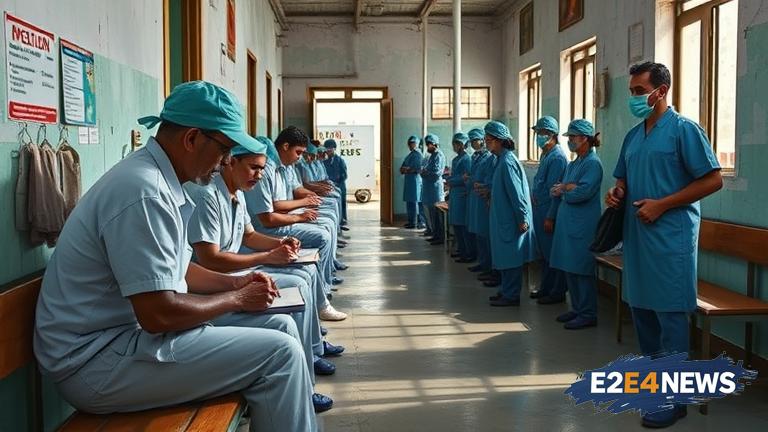Cuba’s medical missions have long been a source of pride for the island nation, with thousands of medical professionals dispatched to countries around the world to provide critical healthcare services. However, recent allegations of forced labor have sparked intense scrutiny and debate, with many questioning the true nature of these missions. According to reports, many Cuban medical professionals are being coerced into participating in these missions, with some even being forced to work in dangerous and unsanitary conditions. The Cuban government has denied these allegations, claiming that the medical professionals are volunteers who are eager to serve their country and provide humanitarian aid. However, many experts and human rights organizations are skeptical of these claims, pointing to evidence of coercion and exploitation. The allegations of forced labor have sparked international concern, with many countries and organizations calling for greater transparency and accountability. The United States has been particularly vocal in its criticism, with officials accusing the Cuban government of engaging in ‘modern-day slavery.’ The Cuban government has responded by accusing the US of attempting to discredit its medical missions and undermine its international reputation. Despite the controversy, Cuba’s medical missions continue to operate in many countries, with thousands of medical professionals providing critical healthcare services to those in need. However, the allegations of forced labor have raised important questions about the ethics and sustainability of these missions. Many are calling for greater oversight and regulation, as well as increased support for the medical professionals who are participating in these missions. The controversy has also sparked a broader debate about the role of international aid and development, with many questioning the motivations and methods of countries and organizations that provide humanitarian assistance. As the debate continues, it is clear that the allegations of forced labor have had a significant impact on Cuba’s medical missions, and will likely have far-reaching consequences for the country’s international reputation and relationships. The Cuban government will need to address these allegations and provide greater transparency and accountability in order to restore trust and credibility. The international community will also need to play a role in promoting greater oversight and regulation, as well as supporting the medical professionals who are participating in these missions. Ultimately, the goal should be to ensure that humanitarian aid is provided in a way that is ethical, sustainable, and respectful of human rights. The controversy surrounding Cuba’s medical missions is a complex and multifaceted issue, with many different perspectives and interests at play. As the situation continues to evolve, it is likely that there will be many more developments and debates in the coming weeks and months.
